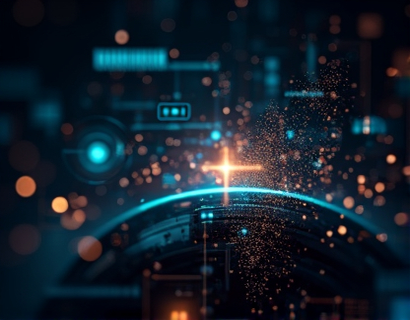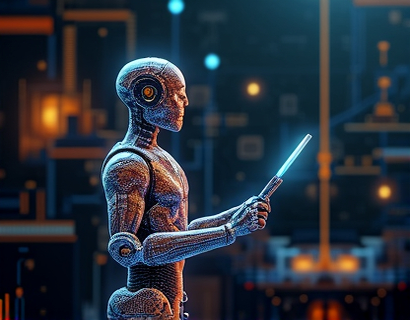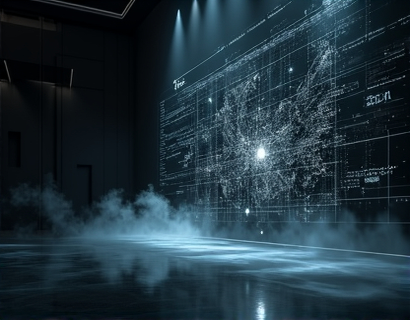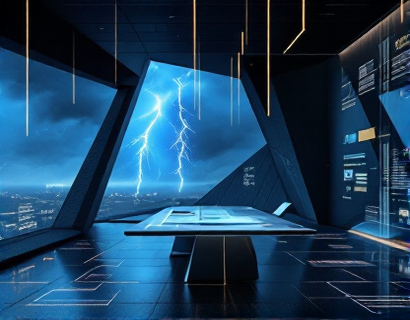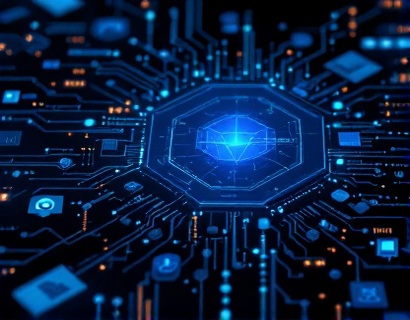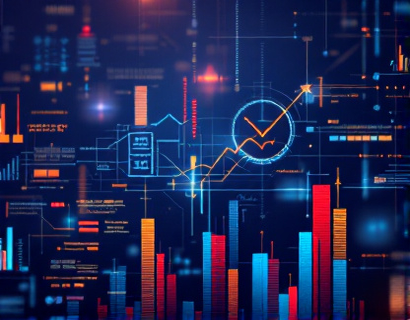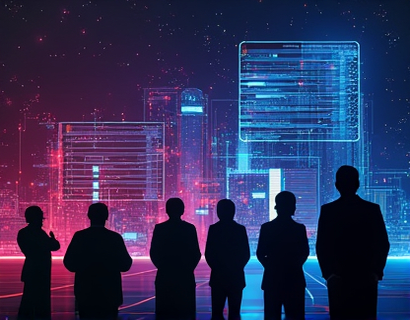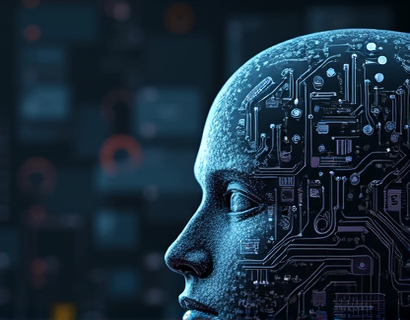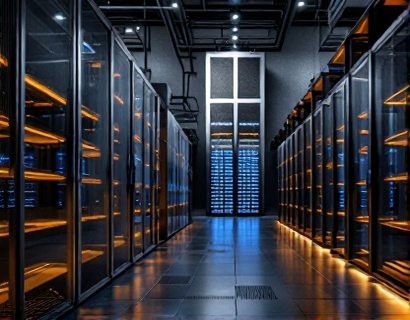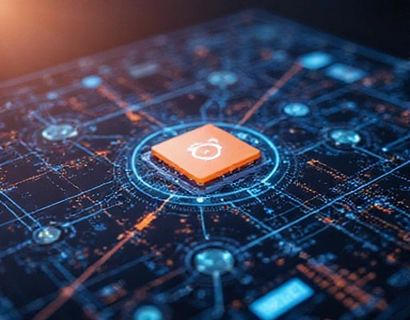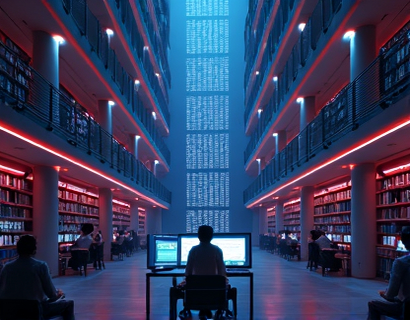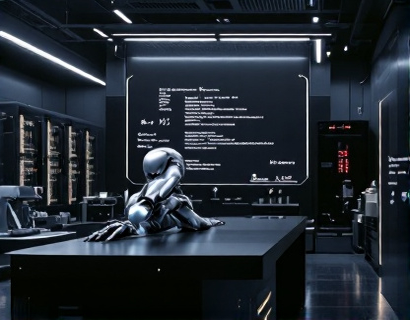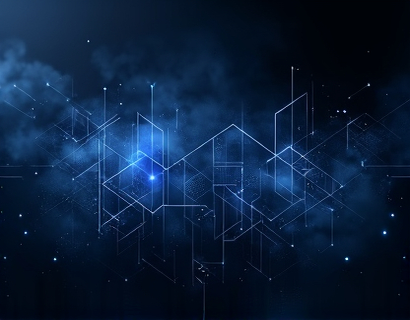Decentralized DAOs: Transforming Web3 Governance with Community Empowerment and Innovation
In the rapidly evolving landscape of Web3, decentralized autonomous organizations (DAOs) are emerging as a pivotal force in redefining governance structures. These entities leverage blockchain technology to create transparent, community-driven, and scalable systems for managing digital protocols. This comprehensive guide delves into the transformative potential of DAOs, focusing on how they empower communities, enhance transparency, and drive innovation in the governance of Web3 ecosystems.
Understanding DAOs
Decentralized autonomous organizations, or DAOs, are organizations governed by rules encoded on a blockchain. Unlike traditional organizations, DAOs do not rely on a central authority or hierarchical structure. Instead, they operate through smart contracts that automate decision-making processes based on predefined criteria. This decentralized approach ensures that power is distributed among members, fostering a more democratic and inclusive governance model.
The foundation of a DAO lies in its ability to execute tasks and manage assets without intermediaries. By utilizing blockchain's immutable and transparent ledger, DAOs provide a trustless environment where members can interact and make decisions collectively. This shift from centralized to decentralized governance is a significant step towards creating more resilient and community-oriented digital ecosystems.
Community Empowerment through DAOs
One of the most compelling aspects of DAOs is their capacity to empower communities. In traditional governance models, decision-making power is often concentrated in the hands of a few. DAOs democratize this process by allowing token holders to propose, vote on, and implement changes. This participatory approach ensures that the voices of all community members are heard and considered, leading to more inclusive and representative outcomes.
For instance, in a DAO managing a decentralized finance (DeFi) protocol, token holders can propose new features, modify existing ones, or allocate funds for development. The voting process is transparent, with all proposals and votes recorded on the blockchain. This not only builds trust within the community but also encourages active participation and engagement. Members feel a sense of ownership and responsibility, driving a more vibrant and dynamic community.
Transparency in DAO Governance
Transparency is a cornerstone of DAO governance. The blockchain's inherent transparency ensures that all transactions, proposals, and votes are publicly visible and verifiable. This level of openness reduces the risk of corruption and mismanagement, as every action is traceable and auditable. Community members can monitor the organization's activities in real-time, fostering accountability and trust.
Moreover, the immutable nature of blockchain records means that once a decision is made, it cannot be altered or deleted. This permanence adds another layer of security and reliability to the governance process. In a world where trust in institutions is often waning, DAOs offer a refreshing alternative that prioritizes transparency and integrity.
Scalability and Efficiency
Scalability is a critical factor in the success of any governance model, especially in the fast-paced world of Web3. DAOs are designed to scale efficiently by automating routine tasks through smart contracts. These contracts execute predefined actions when certain conditions are met, reducing the need for manual intervention and speeding up decision-making processes.
For example, in a DAO managing a decentralized marketplace, smart contracts can automatically handle transactions, distribute profits, and manage inventory. This automation not only increases efficiency but also minimizes the potential for human error. As the community grows, the DAO can adapt and scale its operations without the overhead costs associated with traditional hierarchical structures.
Driving Innovation through DAOs
Innovation is at the heart of Web3, and DAOs play a crucial role in fostering a culture of continuous improvement and experimentation. By enabling community-driven decision-making, DAOs encourage diverse perspectives and creative solutions. Members from various backgrounds can contribute ideas and collaborate on projects, leading to more innovative and robust outcomes.
Take, for instance, a DAO focused on developing a decentralized social media platform. Community members can propose new features, such as enhanced privacy tools or decentralized content moderation. Through a transparent and democratic process, the most promising ideas are selected and implemented. This iterative and collaborative approach accelerates innovation and ensures that the platform remains relevant and user-centric.
Challenges and Considerations
While DAOs offer numerous benefits, they also come with challenges that need to be addressed. One of the primary concerns is the technical complexity involved in setting up and managing a DAO. Not all communities have the expertise to develop and maintain smart contracts, which can be a barrier to entry. However, as the ecosystem matures, more user-friendly tools and platforms are emerging to democratize DAO creation and management.
Another challenge is the governance paradox, where the more decentralized a decision-making process becomes, the harder it is to reach consensus. This can lead to decision paralysis or slow response times in critical situations. To mitigate this, DAOs can implement mechanisms such as weighted voting or delegate representation, balancing decentralization with efficiency.
Case Studies: Successful DAOs
Several DAOs have already demonstrated the potential of this governance model. One notable example is the MakerDAO, which manages the stablecoin DAI on the Ethereum blockchain. MakerDAO's DAO allows token holders to propose and vote on changes to the protocol, such as adjusting collateral requirements or introducing new stablecoins. This community-driven approach has led to significant growth and stability, making MakerDAO a benchmark for decentralized governance.
Another successful DAO is the Aragon platform, which provides a suite of tools for building and managing DAOs. Aragon's own governance is conducted through a DAO, allowing users to propose and vote on features and improvements. This self-governed model has resulted in a robust and flexible platform that continues to evolve based on community feedback.
The Future of DAOs in Web3
As Web3 continues to mature, the role of DAOs is likely to become even more prominent. The combination of community empowerment, transparency, and scalability makes DAOs an ideal framework for managing complex digital ecosystems. As more projects adopt this governance model, we can expect to see a shift towards more decentralized and participatory systems.
The future of DAOs holds exciting possibilities, from decentralized governance of entire blockchain networks to the creation of autonomous economic systems. By embracing DAOs, the Web3 community can build a more resilient, inclusive, and innovative digital landscape. The journey towards a decentralized future is just beginning, and DAOs are at the forefront of this transformative movement.




